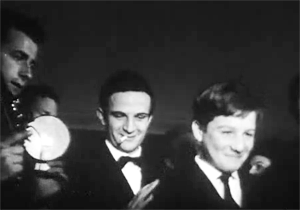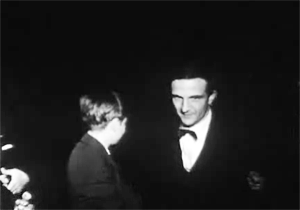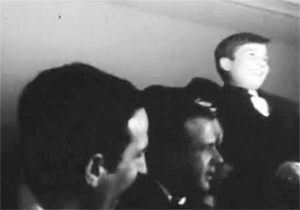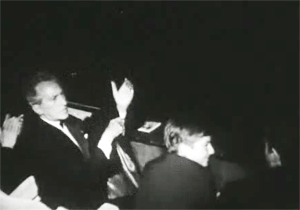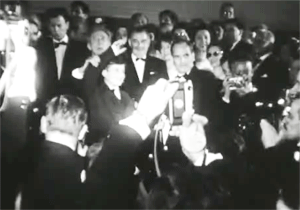Boosts from Sundance and Cannes prizes don't translate into boxoffice appeal
 Quvenzhane Wallis in "Beasts of the Southern Wild"
Quvenzhane Wallis in "Beasts of the Southern Wild"One of the most eagerly awaited films of the summer is upon us, and it has no special effects, no comic book connections, no action scenes, no raunchy jokes, and no actors that you’ve ever heard of.
Heck, you may not even have heard of the movie -- which, of course, makes it odd that it can be considered “eagerly awaited.”
The film in question is
“Beasts of the Southern Wild,” a tiny, poetic and sometimes thrilling movie about life on an island in the Mississippi Delta, a place outside of civilization that’s radically altered by a massive storm. “Beasts” won the Grand Jury and cinematography prizes at January’s
Sundance Film Festival, took home four awards from May’s
Cannes Film Festival (including the
Camera d’Or for best first feature), and has been rapturously received by festival audiences and critics in the other cities where it has appeared. (It opens here on Friday, July 13 at
Cinema 21.)
If that gilded pedigree sounds enticing to you, you’re probably aware that you’re not exactly swimming in the widest stream of American moviegoing. “Beasts” began its commercial theatrical run in late June on four (that is FOUR) screens in New York and Los Angeles, or roughly 0.1% of the number of venues that have been or will be devoted to the premieres of
“The Avengers,” “The Amazing Spider-Man” and
“The Dark Knight Rises,” to name just the biggest of this summer’s blockbusters. A nationwide sensation “Beasts” is, in short, not.
In fact, it turns out that few films that win even the most prestigious prizes at the most prestigious film festivals ever become true boxoffice sensations. Consider these Sundance-winning titles:
“Like Crazy” (2011),
“Frozen River” (2008),
“Sangre de Mi Sangre” (aka “Padre Nuestro”) (2007),
“Quinceañera” (2006),
“Forty Shades of Blue” (2005),
“Primer” (2004),
“American Splendor” (2003), and
“Personal Velocity” (2002). It’s an estimable list, with some real treats and a couple of Oscar nominations in the bunch. But the eight films made a total of $14,980,000 --
combined. Boxoffice success is surely not a sign of quality, but it seems that films that get such a huge boost from America’s premiere festival ought to do better, no?
You could blame distributors (a few of those titles never even played in indie film-friendly Portland, for instance, let alone other, larger markets). And you can point out that the festival juries who award these prizes are obliged to choose from the films which are officially entered in the competition and thus unable to crown other films at the festival which might be equally worthy -- much in the way political elections are choices between the actual candidates and not always (if ever) a selection of the absolute best people.
But, too, there seems to be a disconnect between what film festival audiences and juries like and what the larger moviegoing public wants to see. As film industry analyst
Jeffrey Wells of
HollywoodElsewhere puts it, “There's always been a huge aesthetic gap between film journos and cineastes who attend film festivals and Average Joes who buy tickets to see films. Film dweebs tend to regard emotional currents askance, as many of them did with ‘Titanic.’ But a film generally has to deliver a clear and accessible emotional connection to gather boxoffice support.”
Another way of thinking about it is to realize that movies can take on an aura of urgency and impact in the heat of a film festival that doesn’t’ necessarily carry over to the
plein aire of ordinary moviegoing. This can, in some cases, mean that distributors pay way more for them than they ought to. And it can mean that juries -- which are, after all, composed of humans and subject to whims, moods and pressures -- can mete out prizes in curious ways. “Like Crazy,” for instance, was selected ahead of
“Martha Marcy Mae Marlene” and
“Take Shelter”; “Quinceañera” ahead of
“Half Nelson”; “Primer” ahead of
“Garden State” and
“Napoleon Dynamite”; “Forty Shades” ahead of (deep breath)
“Brick,” “Hustle and Flow,” “Me and You and Everyone We Know,” and
“The Squid and the Whale.” Boxoffice aside, the post-festival critical reception favored the also-rans in virtually all of those cases.
It’s worth noting that some Sundance winners have gone on to boxoffice success and even to make noise during awards season:
“Precious” won the festival’s top prize in 2009 and
“Winter’s Bone” the following year. And, too, Cannes, where the films in competition aren’t limited by budget size as at Sundance, can anoint some films that go on to do relatively big business: among recent winners of that festival’s top prize, the
Palme d’Or, have been
“The Tree of Life” (2011),
“Fahrenheit 9/11” (2004), and
“The Pianist” (2002). (It might also, of course, turn out that "Beasts of the Southern Wild" ends up the next
"Avatar," but don't hold your breath until you turn blue....)
But it can be argued that each of those commercially successful titles had something -- a star (or star-making performance), a level of polish, a hot-button subject matter, directorial cachet -- to put it over at the boxoffice. In other words, a prestigious prize was only one of the things they had going for them. As
Tom Ranieri, owner operator of Cinema 21, where “Beasts” will debut and where several other festival-winning films have had their Portland premeires, says: “While winning an award obviously raises the profile of a title, it has very little effect on the number of people whom eventually see it. A movie has to have a spark (hot titles seem to spontaneously combust) for there to be any chance of finding an audience. Winning awards is part of the overall marketing can of gasoline. A ton of fuel with no spark equals no fire.”

